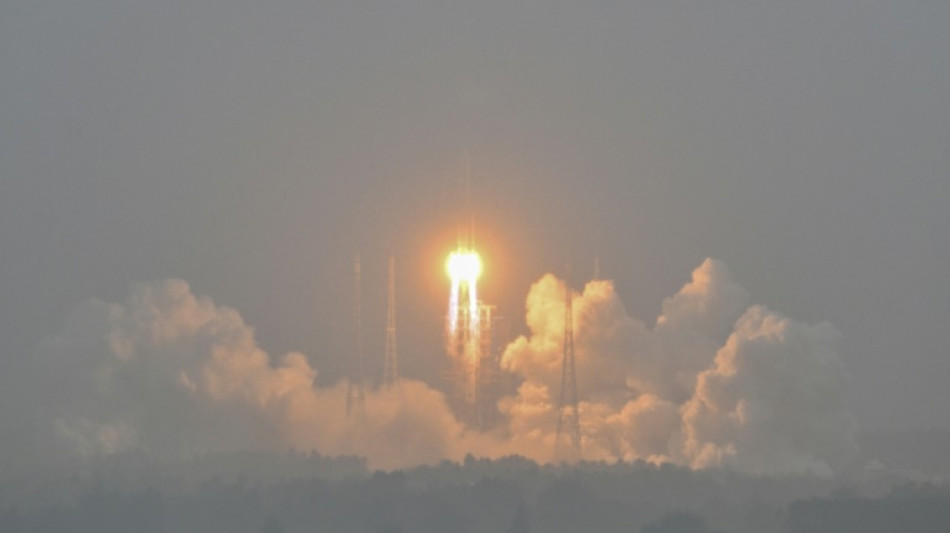

China lunar probe to return to Earth with samples
A Chinese probe carrying samples from the far side of the Moon is expected to return to Earth on Tuesday, capping a technically complex 53-day mission heralded as a world first.
Beijing has not disclosed the spacecraft's estimated arrival time, but experts say it will likely touch down in a barren expanse of desert in the northern Inner Mongolia region at around midday (0400 GMT).
It comes bearing soil and rocks from the side of the moon that faces away from Earth, a poorly understood region that scientists say holds great research promise because its rugged features are less smoothed over by ancient lava flows than the near side.
That means the materials harvested there may help us to better understand how the Moon formed and how it has evolved over time.
Chang'e-6 blasted off from a space centre on the island province of Hainan on May 3 and descended into the Moon's immense South Pole-Aitken Basin almost exactly a month later.
It used a drill and robotic arm to scoop up samples, snapped some shots of the pockmarked surface and planted a Chinese flag in the grey soil.
On June 4, the probe made the first ever successful launch from the far side in what Chinese state news agency Xinhua called "an unprecedented feat in human lunar exploration history".
Authorities have been coy about disclosing updates on the probe's progress since then.
But China's space agency said in a social media post on Friday that it was "70 percent" of the way back to Earth.
- 'Space dream' -
Plans for China's "space dream" have shifted into high gear under President Xi Jinping.
Beijing has poured huge resources into its space programme over the past decade, targeting ambitious undertakings in an effort to catch up to traditional space powers the United States and Russia.
It has built a space station, landed robotic rovers on Mars and the Moon, and become only the third country to send astronauts into orbit.
But the United States has warned that China's space programme masks military objectives and an effort to establish dominance in space.
China aims to send a crewed mission to the Moon by 2030 and plans to eventually build a base on the lunar surface.
The United States also plans to put astronauts back on the Moon by 2026 with its Artemis 3 mission.
O.Meyer--HHA



